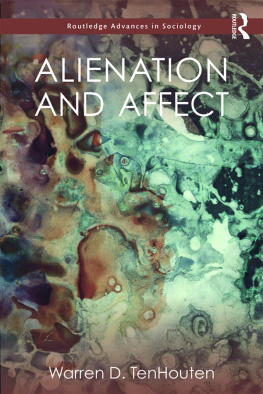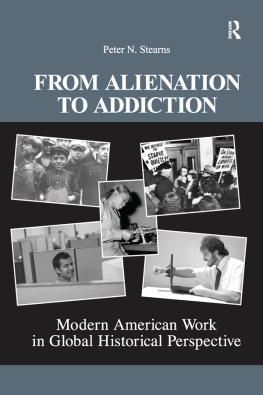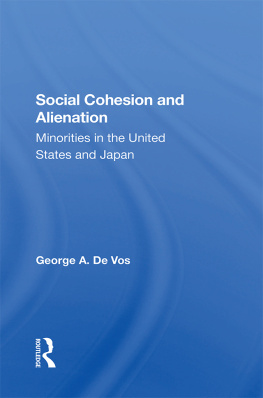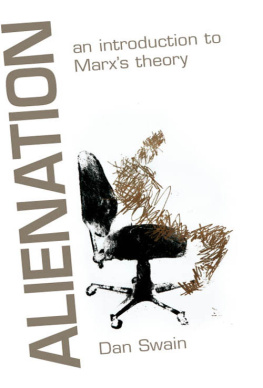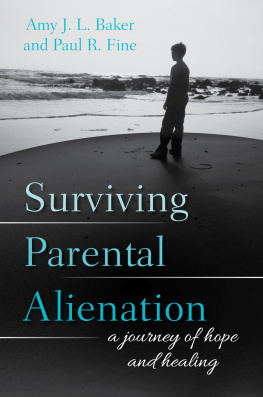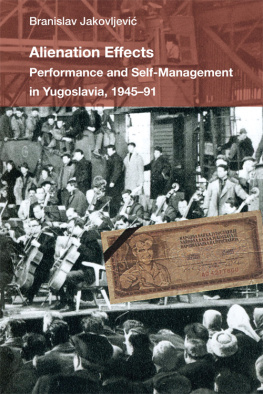First published 2017
by Routledge
2 Park Square, Milton Park, Abingdon, Oxon OX14 4RN
and by Routledge
711 Third Avenue, New York, NY 10017
Routledge is an imprint of the Taylor & Francis Group, an informa business
2017 Warren D. TenHouten
The right of Warren D. TenHouten to be identified as author of this work has been asserted by him in accordance with sections 77 and 78 of the Copyright, Designs and Patents Act 1988.
All rights reserved. No part of this book may be reprinted or reproduced or utilised in any form or by any electronic, mechanical, or other means, now known or hereafter invented, including photocopying and recording, or in any information storage or retrieval system, without permission in writing from the publishers.
Trademark notice: Product or corporate names may be trademarks or registered trademarks, and are used only for identification and explanation without intent to infringe.
British Library Cataloguing in Publication Data
A catalogue record for this book is available from the British Library
Library of Congress Cataloging in Publication Data
A catalogue record for this book has been requested
ISBN: 978-1-138-77770-5 (hbk)
ISBN: 978-1-315-77247-9 (ebk)
Typeset in Times New Roman
by Apex CoVantag e, LLC

In the 18th and 19th centuries, the ancient concept, alienation, emerged as a topic of interest in the developing fields of social philosophy and social theory. Long contested, the term alienation has assumed varied and sometimes incompatible meanings, reflecting differing assumptions, epistemologies, ontological, and ethical, normative, and existential perspectives. Despite widely different interpretations of alienation offered by such seminal scholars as Rousseau, Hegel, Marx, Simmel, and Weber, a consensus nonetheless held that the phenomenon of alienation implies distance, separation, or estrangement. This disengagement can be from ones self, from significant others, from possessions or experiences of value, from aspects of ones society, from cultural values, from work, from institutions and government, from nature, and beyond.
Despite a gradual decline in alienation studies in the social and behavioral sciences since the early 1970s, the phenomenon of alienation has hardly disappeared. Indeed, alienation has become particularly salient in our contemporary fragmented and increasingly unequal and unstable societies. As economic elites solidify their grip on power, many millions of citizens experience hardship and thwarted opportunities. Soldiers, veterans, and civilians are traumatized by wars and regime change. Increasingly overpopulated nations confront ecological devastation. Multitudes of youth face futures without realistic chances of educational and occupational advancement or meaningful participation in economic and political life. Greed and corruption run rampant. Accompanying these increasingly troubling developments is a pervasive cynicism concerning government, the breakdown of civic culture and loss of democracy, and ineffectual efforts to control the relentless financialization of the global economy. Given these disturbing trends, individuals are sure to develop feelings of impotence and alienation that include an erosion of meanings, norms, and rules, and a sense of cultural incoherence. There is thus renewed need for alienation theory and research, so that alienation as an experienced state of mind can be understood, and both its structural causes and its sociobehavioral consequences better analyzed and addressed.
This book aspires to take a step in that direction, through a two-part strategy. We first situate the concept of alienation in its historical, philosophical, and ideological contexts, and then develop it as a scientific concept. Throughout this work, we emphasize the role of affect, sentiment, and emotion in alienation. We elaborate We thus focus on five varieties of alienation, but we additionally show that two of these varieties, normlessness and cultural estrangement, consist of two subtypes. Our study thus investigates the affective bases of seven varieties of alienation.
Note
Seeman, in 1972, proposed a sixth variety of alienation, social isolation. Social isolation, however, is arguably not a variety of alienation, and a huge literature on this subject has emerged with scant reference to alienation theory.
abhorrence
Aborigines, Australian
acceptance acquiescence
affect
affect-spectrum theory
Age of Reason
aggressiveness
alarm
alexithymia
alienation: in the 1960s
altruism
ambition
analysis
Ancient World
anger
angst
anomie
anticipation
anxiety
anxiety buffer disruption theory
apocalyptic prophesy
artistic production
asceticism
attack
authority
awe
being
belief
bliss
body, the
bondage, bondsman
boundary defense
bureaucracy
capitalism
challenge, challenge displays
class consciousness
cognition
communication
communism
community
comparison, social
conformity
confusion
consciousness
consumerism
contempt
contradiction
corpus callosum
counterculture
courtship displays
cultural estrangement
culture
curiosity
cynicism
death
dehumanization
depression
derisiveness
despair
destruction
detachment, social
disappointment
discouragement
disdain
disgust
disillusionment
distress
distrust
division of labor see
dominance
dread
economic development
economic exploitation
economic stress
ego(-ism)
emotional focus
emotional intensity
emotions
emotions classification
emotions management
emotionsvalence theory
emptiness
ends
Enlightenment, the
envy
equality
Euro-Australians
evil
evolution
existentialism
existential problems
expectation see
exploration
fatalism
fear
finitude
flesh, the see
fragmentation
freedom
frustration
future, the
gambling
genius
Gnosticism
goals
God-concept
guilt
happiness
helplessness
hierarchy
homelessness
homicide
hubris
human(-ity), human nature
humiliation
identity, social
imagination
incorporation
inequality
inferiority, social
invisibility
jealousy
joy and enjoyment
left hemisphere of brain
life-historical interviews
locus of control
logic
loneliness
lord, the see
love
magic
malaise
market-priced social relations
master, the
materialism
meaningfulness
meaninglessness xv2,
mechanization
Medieval times see
memory
Middle Ages
modernity, modernization
money
morality
mortality see
nature
New Left
normlessness
norms, sociocultural
occupational specialization , 1688
Old Left
oppression
optimism
outrage
pain
passion
past, the
pessimism
poverty see
power, social xv1,
powerlessness
present, the
pride
primary emotions
problems of life see
proletariat
protection, defense
quantitative reason

